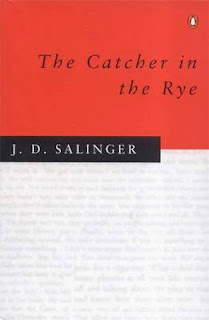A Place You Can Figure Out If You Think About It Really, Really Hard

The Wind-up Bird Chronicle is the second book I've read by Haruki Murakami, the first being Norwegian Wood. The two share many similarities in style (engaging descriptions of everyday events, mellifluous prose) and characters (easy-going protagonists called Toru with unstable lovers, secondary characters who have only a tangential relationship to the story but provide plenty of colour). But where Norwegian Wood is restrained and cohesive, The Wind-up Bird Chronicle is big, messy and very surreal.
Toru Okada's story starts mundanely as he looks for a missing cat, which triggers a succession of loosely-connected meetings with curious people. The plot is almost as hard to summarise as it is to understand, but it centres on the fate of Toru's wife Kumiko and her brother, mixed in with grim tales from Japan's troubled history that seem to echo in the present. Toru meanwhile takes the time for some deep soul-searching and his aimless wanderings bag him a peculiar job. Eventually, after many false turns, there is a resolution of sorts.
As the vagueness above might suggest, this is not a book to read if you want tight plotting. Many seemingly important plot strands are left to go as cold as Toru's spaghetti. Who was the woman making the phone calls? Who had it in for Nutmeg's husband? What was the point of May Kasahara's travels? What exactly is the significance of the wind-up bird? All these and many more are left for the reader to make sense of on their own.
Almost as mysterious as the characters are the richly symbolic objects that play a large role in the story, from wells to cursed houses to baseball bats to wigs to 80's-era computers. What exactly they're symbolic of, I'm not sure, but they all contribute to the enchanting dream-like mood of the book. And that's without even taking into account the actual dream sequences.
After finishing the book I felt like I ought to be able to make sense of it if only I were to ponder it for long enough. It never reads like it's been lazily plotted, but like a well-thought out mystery that is fully resolved in the author's mind, if not my own. Sounds frustrating, and in some ways it is, but part of the joy of reading it is letting all the weirdness flow over you and just enjoying the ride. Murakami's writing is extremely readable, and although the book is long it's divided into very moreish bite-sized chapters. The only problem is that the ending doesn't make the 'just one more chapter' feeling go away.
The Wind-up Bird Chronicle
by Haruki Murakami
First published 1994-1995
Translated by Jay Rubin, 1998



Comments
Post a Comment